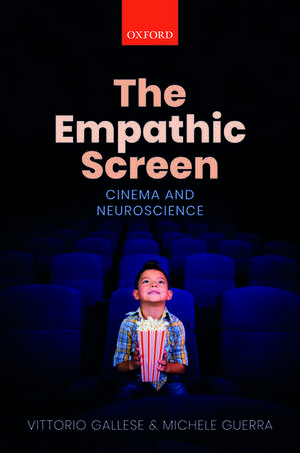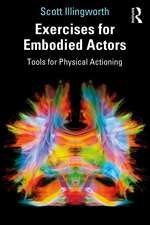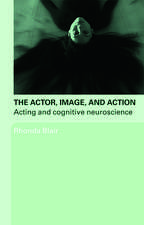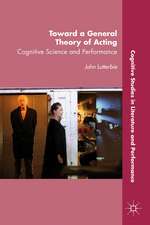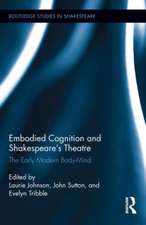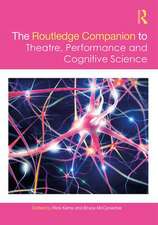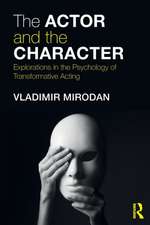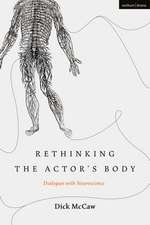The Empathic Screen: Cinema and Neuroscience
Autor Vittorio Gallese, Michele Guerra Traducere de Frances Andersonen Limba Engleză Hardback – 14 oct 2019
Why do people go to the movies? What does it mean to watch a movie? To what extent is the perceived fictional nature of movies different from our daily perception of the real world?We live in a time where the power of images has strongly invaded our everyday life, and we need new instruments and methods to better understand our relationship with the virtual worlds we inhabit every day. Taking cinema as the beginning of our relationship with the world of moving images, and cognitive neuroscience as a paradigm to understand how the images engage us, The Empathic Screen develops a new theory of film experience, exploring our brain-body interaction when engaging with andwatching a film. In this book, film theory and neuroscience meet to shed new light on cinema masterpieces, such as The Shining, The Silence of the Lambs, and Toy Story, and explore the great directors from the classical period to the present. Taking a radical new approach to understanding the cinema, the book will be fascinating reading for cognitive scientists, neuroscientists, psychologists, philosophers, and film and media scholars.
Preț: 324.16 lei
Preț vechi: 414.09 lei
-22% Nou
62.03€ • 64.94$ • 51.32£
Carte tipărită la comandă
Livrare economică 25-31 martie
Specificații
ISBN-10: 0198793537
Pagini: 264
Dimensiuni: 161 x 240 x 20 mm
Greutate: 0.59 kg
Editura: OUP OXFORD
Colecția OUP Oxford
Locul publicării:Oxford, United Kingdom
Recenzii
The Empathic Screen is devoted to examining how our natural tendency to simulate our fellow humans' actions affects the experience of watching (and hearing!) films. The authors attempt to build bridges between cognitivist, neuroscientific research, and philosophical traditions that tend to privilege "nurture" over "nature." Cognitivist-oriented film scholars will particularly enjoy the detailed analyses of film scenes. Gallese and Guerra show how these scenes trigger precognitive, embodied simulation through camera movements, close-ups of facial expressions and bodily experiences, editing, sound effects, or a combination of all these techniques. The book's discussion of experimental findings contains technical terminology and diagrams that the authors always summarize in accessible terms. This book represents the growing influence, not just of cognitive film scholarship, but of cognitive science in the humanities.
Notă biografică
Vittorio Gallese, MD and trained neurologist, is Professor of Psychobiology at the University of Parma, Italy and Adjunct Senior Research Scholar, Dept. of Art History and Archeology, Columbia University, New York, USA. Cognitive neuroscientist, his research focuses on the relation between the sensory-motor system and cognition by investigating the neurobiological and bodily grounding of intersubjectivity, empathy, language and aesthetics. He is the author of morethan 200 scientific publications and two books.Michele Guerra is Professor of Film Theory at the University of Parma. Authors of more than one hundred publications among articles and books, his work mainly focuses on the relationship between cognitive neuroscience and cinema, American and Italian film history. He is an Associate Editor of the film journal "Fata Morgana", and member of the Scientific Board of "Cinergie", "La Valle dell'Eden", and "Arabeschi".
